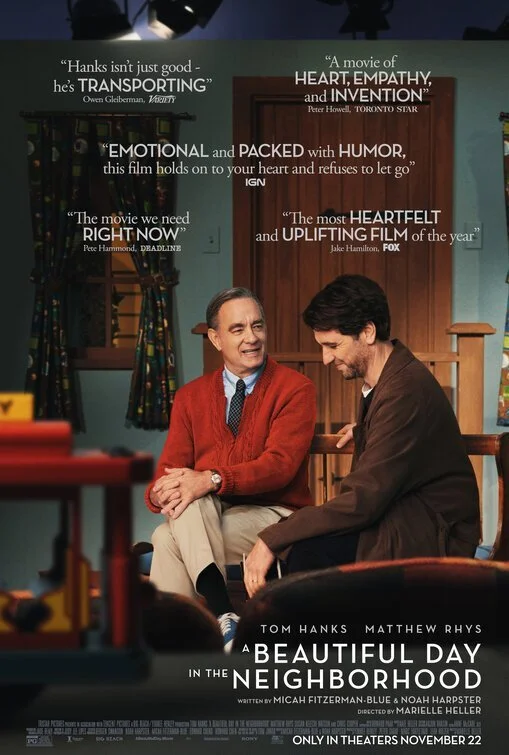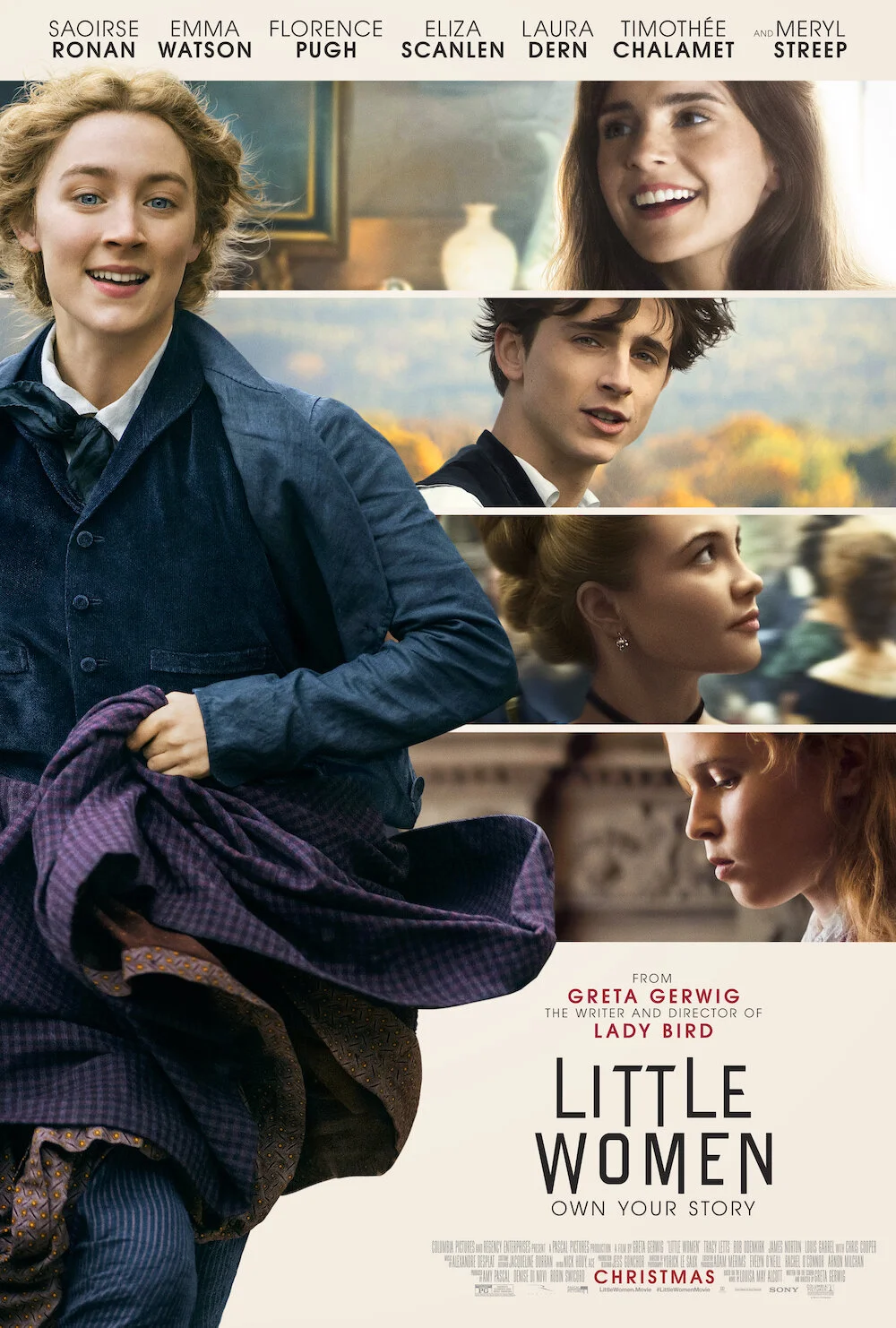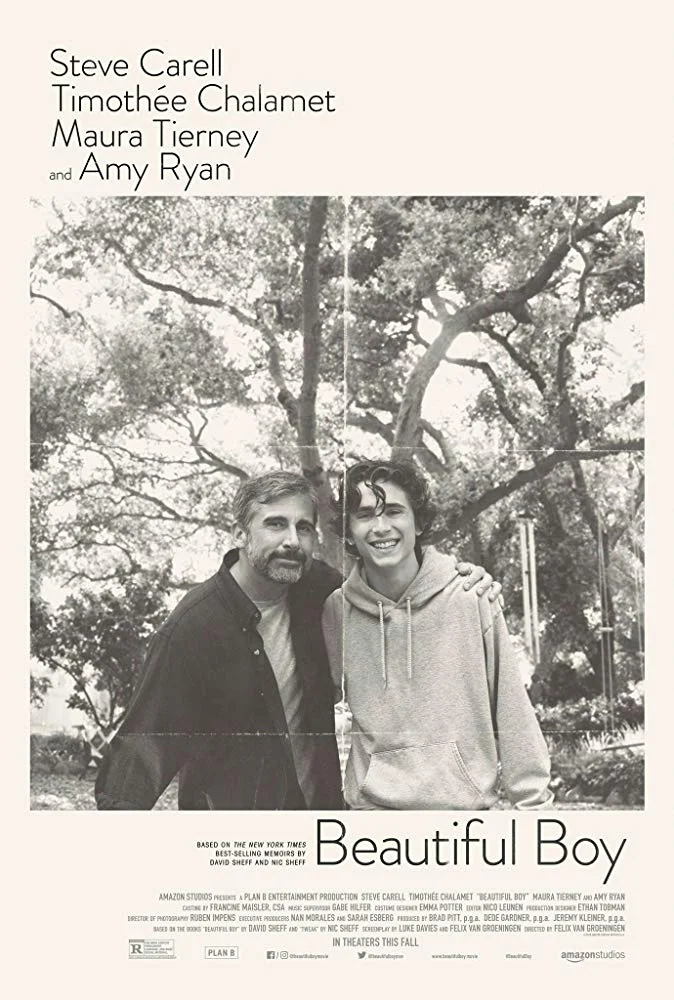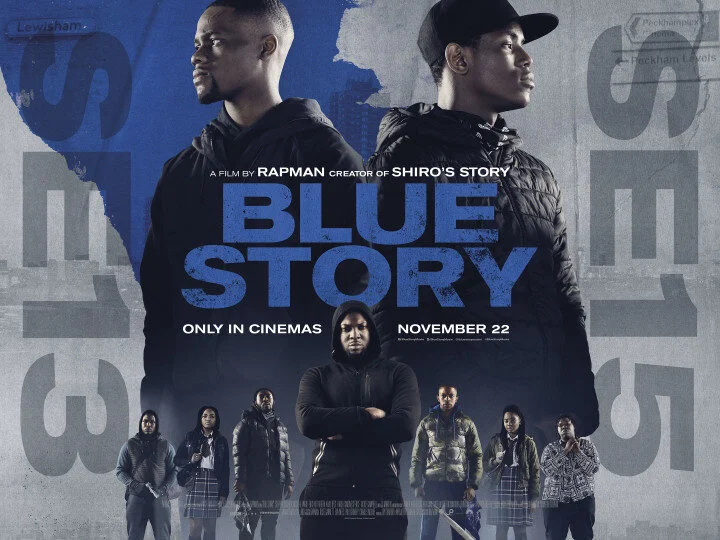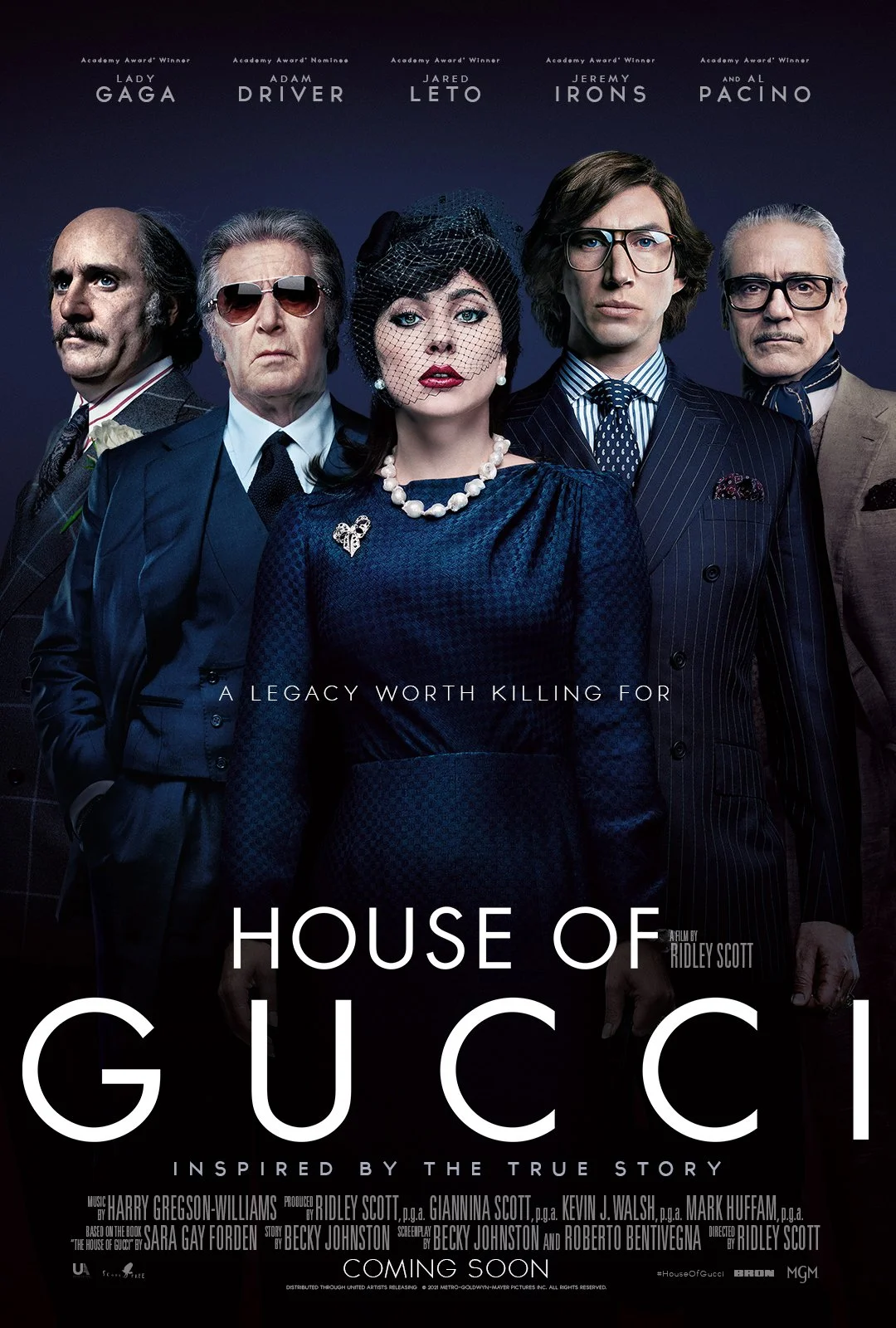A Beautiful Day in the Neighbourhood
Ten Second Review: A touching take on a lovely story and a fitting tribute to an icon of educational television.
Mr Rogers is, in no uncertain terms, an icon. At this point to call him radical and groundbreaking really doesn’t bare weight. When we go back and watch his show and his interviews, he wasn’t just ahead of his time, he remains ahead of us still. It is unsurprising that an investigative journalist would look to a figure like Mr Rogers and want to see what lurks beneath.
Lloyd Vogel is a journalist used to hard hitting stories and breaking news to the masses. When his editor tells him his latest assignment is a 400 word puff piece on Mr Rogers as a hero of our time, he scoffs, but as he meets him he’s convinced there’s layers to this character. As Vogel questions Rogers, Rogers takes his time to do the same in return. What follows is an exploration of both men’s own attitudes to life and why they may have something to teach other.
What happens when that same investigative journalist finds that the darkness that lies beneath the veneer of Mr Rogers is only his own feelings on the figure. By all accounts Fred Rogers was not a character but seemingly an embodiment of a desired identity and Rogers had dedicated his entire life actuating it.
This film does two things particularly well. The first thing is it underlines the inherent cynicism we bare as a society toward individuals who are deemed saint like. There must be something dark about them, there must be secrets, they must hate putting on this act all the time. As the film mentions there were even rumours about Mr Rogers like him being a sharpshooter or navy seal that were designed to give the man edge or a darker side. A figure like Rogers challenges us because we often struggle with grappling that some people have a set of values that contradict so many modern society’s norms.
The other thing that A Beautiful Day in the Neighbourhood does well is illustrate pain. While there are central storylines concerning the theme it’s in the subtle acting that it feels like a sincere meditation on the topic. Between Hanks and Rhys we see inflections in their acting showing that both these characters are hurting (some more clearly than others) and the film plays on this through the other characters too. One of Mr Rogers’ key messages was he wanted to give children the language to express their emotions and help them find the space and ability to discuss things like pain. The film makes this point in its scripting but reinforces it with acting in a quiet and tender way.
It was refreshing to watch a film that really took its time to focus on a single central idea. It’s by no means one of my fav films of the year and the recent documentary, Won’t you be my neighbour?, would be my suggestion for those intrigued by Rogers, but it is a wonderful film. It doesn’t gain heaps from the big screen so if you’re picking between films to see this awards season this can happily wait for the Netflix treatment but I would certainly recommend catching it at some point.
